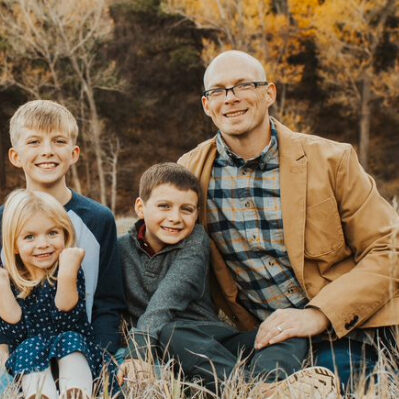 |
“Hope does not put us to shame, because God’s love has been poured out into our hearts through the Holy Spirit, who has been given to us” (Romans 5:5).
At a time when we have limitless entertainment options at our fingertips, we have fewer and fewer shared experiences. When the series finale of M*A*S*H aired in 1983, over 100 million viewers turned in, topping even the ratings for the Super Bowl. Today if you ask people for a TV show recommendation, you might not even be able to access it because of all the subscription packages available.
Stories that define the world’s reality
We don’t all have the same tastes in—or even the same access to—the same music, movies, and shows. We do, however, share some basic needs with all people. These needs can leave people feeling hopeless.
If we can be thoughtful, humble, and curious, we might be able to find openings to share the hope that defines us. Stories have the power to draw us in. Great stories can grip our attention and pull unsuspecting audiences into their gravitational pull. Carefully crafted stories can do more than merely entertain us. They can reveal how people view the world, exposing issues in their hearts.
Over the past 100 years the most influential thinkers have defined our human existence as a search for meaning in a meaningless world. Critically acclaimed artists in recent generations depict hopelessness. There is struggle, but there’s no certainty of any purpose behind it.
Now compare the stories pushed on us by intellectuals with the stories that captivate us. The highest grossing movies in the last two decades are from the Avatar, Avengers, and Star Wars franchises. Good has to stand up against evil. There has to be a bigger purpose behind the struggle. Stories we find compelling expose the inconsistencies between what people say they believe and what they want to believe. People might surrender to the assumption that this life is all there is, but we all know there is more. There has to be.
The story that offers hope
Author J. R. R. Tolkien once described the way the best fiction contains elements of the universal truth. There has been a fall from perfection. There is conflict between good and evil. Ultimately good will triumph over evil and provide a happy ending. It traces back to the gospels. Tolkien wrote: “The Birth of Christ is the eucatastrophe of Man’s history. The Resurrection is the eucatastrophe of the story of the Incarnation” (On Fairy-Stories, p. 34). The coming of Jesus was a tragedy, but a good one. His resurrection provides meaning to suffering.
God’s people have hope that our lives are more than our choices because God has given us meaning and purpose. We gather in communities of hope that pull us away from simply feeding our personal preferences. And we have hope to share with a world that desperately needs it. Jesus provides the story that is too good because it is true. Jesus triumphed over personal evil and universal wickedness. His victory is ours individually and available for the entire world. “Hope does not put us to shame, because God’s love has been poured out into our hearts through the Holy Spirit, who has been given to us.”
Even the greatest tragedies and the most captivating stories give us a chance to be known by our higher hope. If we are known as God’s people in a distinctive community, we can offer our world a distinctive hope.
Author: Jeffrey Enderle
Volume 110, Number 10
Issue: October 2023
- Paradise restored
- Paradise lost?
- The death of death
- New resolve for a new year
- Joseph also went up
- The secret of being content
- Known for a higher hope
- Known as God’s distinctive community
- Embodying God’s calling
- Help from the Mountain Maker
- The need for a bold confession
- More than enough
- Don’t judge a book by its cover
- One for all
- I love you
- Resolving to share joy
- Miracle in the mess
- Thank God for conflict
- Plant the Seed
- The cameras are rolling
- Too many words
- Now what?
- Do you mind if I come in?
- Facts over feelings
- The most loving friendship
- The old has gone, the new is here!
- Believe the Christmas miracles
- He’s coming—really!
- Power over death
- Deliver us from evil
- Overwhelmed but not overcome
- Money talks!
- Freedom’s value is in its use
- Joyful repentance
- The world’s leading philanthropist is our friend
- Like Joseph
- But you promised!
- The church sees color
- We believe, therefore we listen
- Clarity in life from closeness to death
- Be like Jesus in forgiveness and love
- Be gentle like Jesus
- Jesus is for the birds
- Death dies on this mountain
- Repent of deception
- Resolutions of faith
- God loves the doubters
- Grieving in hope
- Personal reformation
- Be imitators of Jesus in doing good
- God’s actors
- Our shelter in God’s shadow
- God’s promised rest
- Our very great reward
- Keeping the festival
- Close enough to love
- Called to love, called to speak
- Epiphanies change everything







